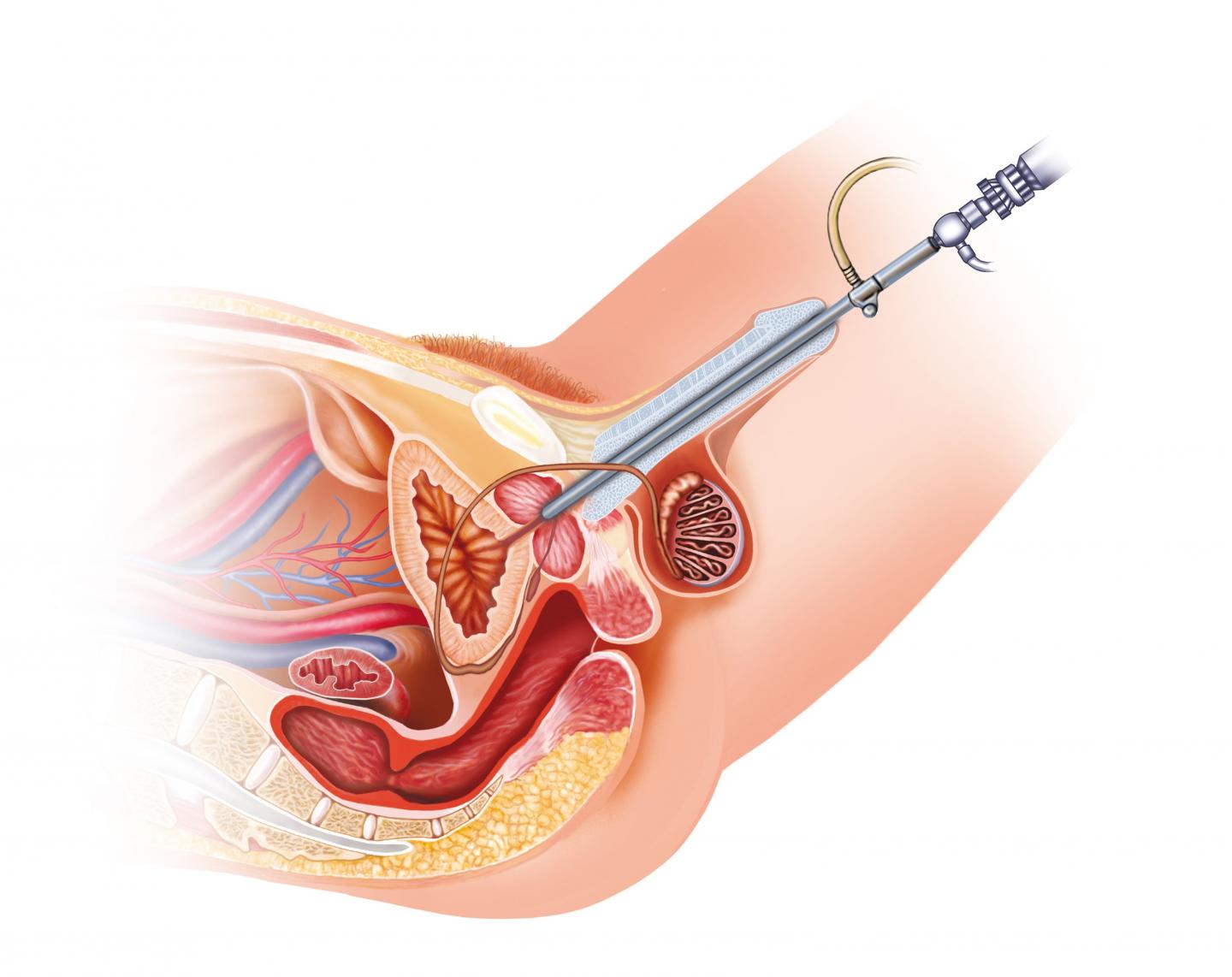Flinders University develops new urology care model

Credit: Flinders University
Bladder cancer is a painful and sometimes life-threatening condition that patients can find difficult to talk about, with many becoming homebound as they cope with debilitating side effects such as incontinence.
Bladder cancer mainly starts between the ages of 50 and 80 years old, affecting men at a ratio of 3:1, and is increasing with an ageing population in Australia.
As with prostate and other male cancers, the majority of support and care is taken by the wife, spouse or an immediate family member.
The responsibility and burden of the couple’s combined cancer ‘journey’ has been explored by researchers in nursing and medicine at Flinders University.
The study has underpinned a new model of care for people diagnosed with bladder cancer – focusing on their partners and family and their needs from the healthcare system – for use in urology and other settings.
While little discussed, bladder cancer is characterised by recurrence and progression so often needs ongoing surveillance and treatment.
Chronic ill health and complications associated with treatment can put additional pressure on the patient, as well as their spouse, partner and family, says College of
Nursing and Health Sciences researcher Dr Susan Heyes, who conducted qualitative research with 10 couples to assess their experiences.
Dr Heyes says the battle with bladder cancer can run over several decades, with the treatments, including chemo or surgery, and sometimes co-morbidities taking a toll on all involved.
“They are often too ill or in too much pain to be bothered with activities outside the home. It also can see a couple becoming quite confined to the home due to incontinence, which can discourage them from joining a club or community event as a result of the treatment and embarrassment of the condition.
“This may involve a frequent urge to urinate, which can catch them off-guard and perhaps look odd in public”.
Despite continuous improvement in treatment options, outcomes usually involve long-term surveillance with repeated complications including possible muscle invasion by the cancer resulting in the removal of the bladder and possible death.
“Throughout the study, we found that a supportive partner was vital in dealing with the daily impacts of bladder cancer, and health professionals can capitalise on this in a number of ways,” Dr Heyes says.
“Health professionals can help by giving partners and carers clear and concise information, counselling and support for patient management, with attention to individual and day-to-day needs.”
Cancer nurses, doctors and other health professionals can therefore assist with managing the shock and fear of diagnosis, pre- and post-surgery issues, treatment and recovery, sexuality and body image, and support and comfort.
###
The latest paper, ‘Toward an Understanding of Patients’ and Their Partners’ Experiences of Bladder Cancer’, 2019, by SM Heyes, KN Prior, D Whitehead and MJ Bond (Flinders University), has been published online at Cancer Nursing.
The bladder cancer study is part of a series of journal articles and international conference presentations, with the full quantitative analysis under review along with a chapter in a new nursing and midwifery research textbook aiming to bring the key findings into general practice.
Media Contact
Dr. Susan Heyes
[email protected]
Related Journal Article
http://dx.




